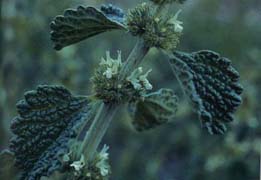User Login |
Fields That Dream: Notes & Responses Chapter 1Laura Donohue Healing Gardens Fall 2006
Fields that Dream: Notes & Responses: Chapter 1
*note: I know this is probably not quite what was in mind when assigned reflections, but this is the easiest and most effective way for me to interact with texts assigned to me.
Fields that Dream: a Journey to the Roots of Our Food Kurzweil, Jenny. Fulcrum Publishing: Golden, Colorado, 2005.
[9]
“I pas conservative-looking ramblers with gnomes and pink flamingos that keep vigilant watch over passerby and derelict homes with rusted-out farm equipment and abandoned Datsuns sprouting out of the earth like weeds.”
-Our author is very conversational but quite descriptive, and all of this familiarity is accentuated by the fact that this book is very local.
[16]
“From the get-go, America was intended to be a country of small farms. The first European settlers worked as farmers, but instead of being the lowest laborers in the English feudal structure, farming in America developed into an opportunity—synonymous with self-sufficiency, prosperity, and, ultimately, the first American Dream.”
-I am thinking of my ancestors, who came to this country very early on. I don’t know much about them. Had they been laborers in their own countries? Something motivated them to move here. If they were laborers, then they have a similar plight to the many millions of mexicans who are immigrating here or want to because of the perceived opportunities here. This legacy continues. My grandpa told me once that I could potentially qualify to be a part of the “Daughters of the Revolution” society: an organization of people with old family roots, whose members probably disdain the idea of Mexicans dilluting our white splendor, and who did not recognize the illigitimate children of Thomas Jefferson until a couple years ago.
[18]
“This misguided celebration of our homesteading heritage has led us to a complex and often paradoxical American psychology of entitlement and denial, bot about the continued social injustice toward minority communities and the rabit rate at which we gobble land—as though there was still a continent to be ‘settled.’”
-I see this in a sad way even amongst back-to-the-landers. Yuppies moving from California and the Northwest to Alaska where it is still “wild”. Where they can have peace and quiet. Their focus is only one or two generations out. What is not realized is their selfishness is wanting to have unsullied nature, but acting as part of the machine that is systematically raping her. I myself struggle with this issue a lot. I grew up in Portland, but also feel strong ties to Olympia and the cascade foothills, but I love the wilderness. Do I set up shop in Olympia and face the inevitable pain of watching the woods around this area disappear every summer? Do I move back down to Portland and interact in a vibrant alternative bike community and live near my family? Or do I live in a community where I have more in common with the people there than almost anyone else on this planet? I am mindfully trying to sort this out ethically and realistically, but I have a little while before I graduate.
[19]
“Untimately, Bob is concerned about a sustainable future for the land. Looking back with hindsight that no homesteader from a hundred years ago had, he can see that the land is held in a delicate balance. He knows that farming is now one of the only ways left to preserve open space. How ironic that farming, which once destroyed the land and so many of its people, is now the key to preservation. It is like saying in the land trust business: ‘Even the worst farm or ranch is better than the best subdivision.’”
-It is interesting to me how the sustainable is differently interpreted for these two books (Turner and Kurzweil). I do not think that most farming practices are sustainable, expecially considering the trend of development that they are a part of. Homogonizing the ecology: irradicating outliers. I think that permaculture, the very definition is much more sustainable: and more healing when utilized at the family level. Even the best monoculture crop is still what it is: an ecological disaster, when compared to what was there before. However, we should be careful when we think that we should just let the land return to what it was, particularly when considering established practices that keep the farm in the condition it is today. After the Roman and Mayan empires fell, their lands were very negatively impacted when their irrigation mechanisms were no longer maintained. Perhapse we can change the way we interact with the land in such a way that the practices that we use to produce food for ourselves maintain the quality of the land, and improve on its functionality and diversity, rather than a fragile balance.
[20]
“We are like dogs chasing our tails in the eternal serach for home. In the process, we are trampling and destroying the only home we have left.”
-I ask a lot of people here at Evergreen where they intend to live after Evergreen, or what kind of emphasis they are going to graduate with, or even if they can commit to come camping in two weeks. Its sometimes disturbing to receive the response: “I don’t know, I can’t plan that far out.”
Laura Donohue
categories [ Reflections ]
login or register to post comments | printer friendly version
|
